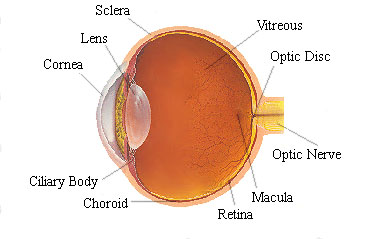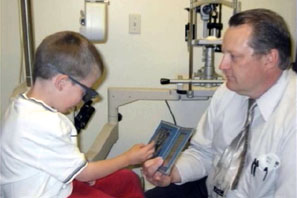Similar to hearing loss, understanding vision loss is necessary to develop effective approaches for children who are deafblind.
Vision is the ability of the brain to process information received from the eyes. The eye receives light and transforms it into electric signals that are sent along the optic nerve to the brain.

Vision problems are grouped into six categories:
- Acuity loss
- Field loss
- Oculomotor problems
- Reduced contrast sensitivity
- Reduced or absent color sensitivity
- Cortical visual impairment (CVI)

Vision professionals include:
- Ophthalmologist
- Optometrist
- Optician
- Orthoptist
- Ocularist
- Low vision specialist
- Teacher of the blind/visually impaired
- Orientation and mobility specialist
Individuals who are visually impaired typically rely on their sense of hearing to understand the environment. When these individuals also have a hearing loss, they must rely more on touch, taste, and smell – senses that don’t detect information from a distance.
